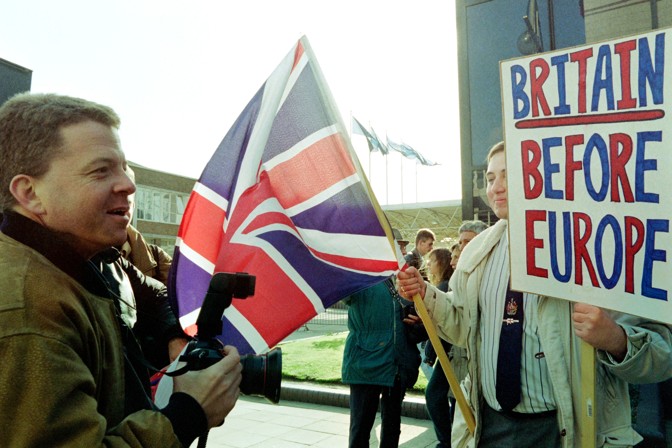By 1990, Thatcher was out of power, in large part because of her fierce skepticism of the moves already under way to establish a single European currency. Yet, only two years after her departure, Britain’s decision to fix its currency to a European exchange rate collapsed on “Black Wednesday” amid a run on the pound. Two decades later, a crisis for the euro itself, even without British participation, followed by another for the open-borders system, would combine to calamitous effect, creating the conditions for Britain’s departure from the European project altogether.
Somewhere along the way, Europe had lost control. What good, then, was British influence?
In 1992, European leaders took an enormous step: The Maastricht Treaty created the European Union. No longer a simple community, it now had a common currency, supreme court, and parliament, all governed by the EU’s supranational law. As Attlee observed years earlier, whether one saw it as good or bad, there was no doubt it was radical: not a United States of Europe, but neither any longer the loose confederation of nation states thatThatcher had argued for.
Britain did not enthusiastically join with Europe. Rather it shuffled forward, nervously negotiating key opt-outs, most importantly from the proposed new single currency. Europe was marching on and Britain could not stop it.
The conservative British-American historian Niall Ferguson regards Brexit as beginning not with the 2016 referendum but with this period, with Britain’s decision not to follow much of the rest of the EU into the euro. “Britain was an equal and voluntary member of a very loose and voluntary confederation until European leaders tried to turn it into something more like a federation,” he told me. “Brexit was a logical conclusion.” Anand Menon, a professor of European politics and foreign affairs at King’s College London, agrees: “Britain emerged [from Maastricht] having secured exceptions from those bits of the treaty it most opposed. Yet Maastricht represented a turning point in our relationship with European integration and contributed, albeit indirectly, to our decision to leave.”
For Thatcher, Maastricht was a historic mistake. In September 1992, in a speech to the World Economic Development Conference in the United States, Thatcher predicted “chaos” if the single currency was introduced. “Huge sums would have to be transferred from richer to poorer countries and regions to allow them to take the strain. Even then, unemployment and mass migration across now-open frontiers would follow. And a full-fledged single currency would allow no escape hatch.” She then laid out the consequences: “The growth of extremist parties, battening on fears about mass immigration and unemployment, offering a real—if thoroughly unwelcome—alternative to the Euro-centrist political establishment. If, in addition, you were to create a supranational European federation, and the people could no longer hold their national parliaments to account, extremism could only grow further.” As forecasts go, it was remarkably prescient.
But Thatcher was no longer in power. Maastricht had been ratified and its own remorseless logic left Britain in a familiar quandary soon after. The treaty crystalized the age-old British dilemma between sovereign control and supranational influence. In joining the club, Britain had chosen influence—yet it had been unable to stop the federal project. Faced with this reality, it reverted to control by sitting out the EU’s latest project.
Source link
 Black America Breaking News for the African American Community
Black America Breaking News for the African American Community
